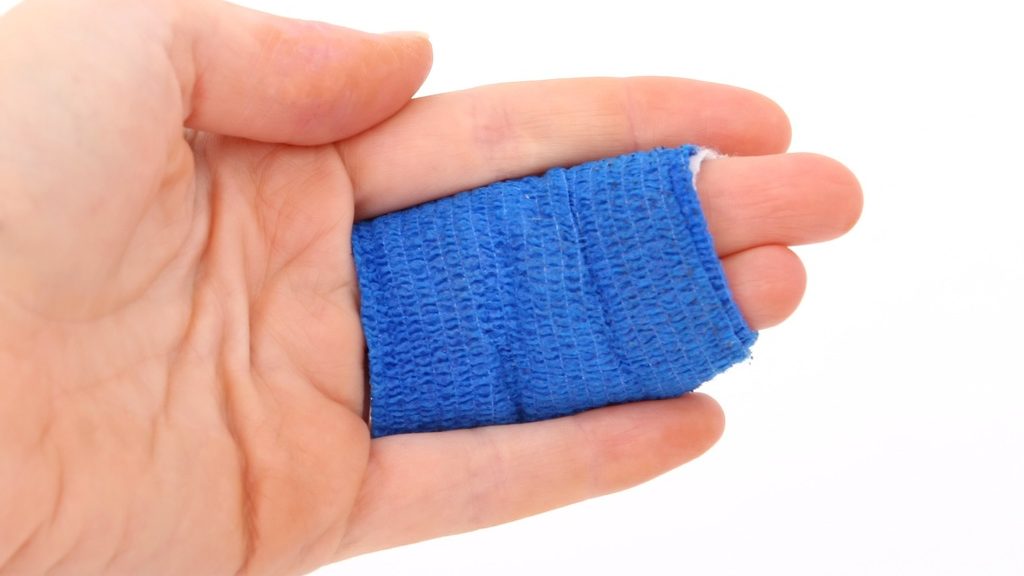If you’ve suffered a finger injury at work or otherwise, you probably want to know about how your injury can impact the overall value of the compensation you may be liable to receive. However, determining the value of your finger injury claim depends greatly on the unique facts of your case.
There are, however, a few common elements that may apply.
Let’s begin by understanding the various types of hand and finger injuries. Like most wounds, finger injuries vary by their severity. Some of the most common injuries plaintiffs tend to suffer include:
- Injury to fingernail or nail bed
- Dislocation
- Bone fracture
- Nerve injury
- Laceration of skin, blood vessels, and tendons
- Amputation
- Tendon strains
- Ligament sprains
Common Reasons for Hand and Finger Injury Claims
- Injuries suffered due to a slip, trip or fall.
- Tendon, ligament, and muscle damage as a result of using dangerous machinery at the workplace.
- Vibration white finger/carpal tunnel syndrome when using vibrating machinery.
- Injury sustained due to repetitive actions such as use of a keyboard without appropriate wrist support.
- Injuries suffered due to raising of hands to protect yourself in a road accident.
- Injuries from using defective products.
- Injuries as a consequence of partaking in sporting activities such as football, rugby, cricket, and so on.
- Injuries taking place in schools and nurseries.
The worker compensation for hand injury will depend on the severity of your injury and the long-term effect it will have on your life. If you plan to file an injury compensation claim, you will need to prove negligence on the part of those responsible for your injuries. This will be followed by negotiating liability and compensation.
Filing a Finger Injury Compensation Claim
Be sure to seek medical treatment immediately after receiving the wound. Every treatment you undergo for your injury will be documented in your medical file. These documents can be presented as evidence at the time of pursuing your claim.
If you have suffered a finger injury at your workplace or while performing work-related tasks, make sure it is recorded in the company’s accident register and the relevant authorities are notified.
It helps to have photographs of the accident site where your finger injury was caused. Apart from this, records of inadequate training, details of insufficient protective clothing and risk assessments, witness statements, and copies of the company’s accident register can help strengthen your claim.
How Soon Should You File a Finger Injury Compensation Claim?
The time frame for claiming for finger injury compensation is three years. However, it is recommended to file your claim at the earliest opportunity possible.
There have also been instances where plaintiffs have suffered from injuries like the vibration white finger, wherein the diagnosis took several years. As a result, the three-year time frame began only after the diagnosis was made and received by the injured party.
While the claim can be filed as soon as possible, this is not always possible due to factors such as diagnosis, treatment, and personal circumstances. However, plaintiffs can breathe easy knowing that they can file for their finger injury claim even after the completion of the three-year window period.
Proving Liability in a Finger Injury Claim
As far as sustaining finger injuries at the workplace is concerned, it is the legal responsibility of all employers to safeguard their employees from hazards that may harm them. A workplace finger injury is usually paid out by the worker’s compensation carrier. The sum of compensation varies from state to state. Generally, if the plaintiff is not completely disabled by the injury and does not have huge medical bills, the compensation payment may not be very high.
In order to file a finger injury compensation, you will need to prove the following:
- The accident was caused due to the negligence of a third party.
- The finger injury caused was the direct result of the accident.
- The accidents worsened the state of a previous finger injury.
Determining the Settlement Value of a Finger Injury
It is important to consider the following when determining the settlement value of a finger injury:
- The employee’s average wage before sustaining the injury.
- Whether or not surgery was necessary to treat the injury.
- If the injured employee required additional treatment.
- If the employee has sustained permanent damage or impairment to the finger.
- If the employee needs to follow any permanent restrictions owing to the injury.
- If pain management was necessary to treat certain conditions.
- The finger that was injured.
- Whether or not amputation was necessary.
Many a time, employees sustain injuries to other parts of their body in addition to the finger injury. This factor goes a long way in determining the value of your claim. For instance, you may have hurt your wrist, elbow, arms, or shoulders in the accident at your workplace. The settlement value of your workers’ compensation will rest on every additional injury that you sustained.
If you are unsuccessful in negotiating a fair workers’ compensation settlement for your finger injury, you may still be entitled to a lump sum payment. If your doctor determines that you will have permanent damage to the finger due to your workplace injury, you should speak to a workers’ compensation attorney immediately. You may be entitled to permanent partial disability benefits. The value of these benefits will depend on the overall impairment caused to your injured fingers.
Conclusion
Irrespective of the type of finger injury you have suffered at your workplace, you are entitled to be compensated by your employer if it has left you disabled. The value of the settlement may vary from state to state, which is why you will do well to have a qualified and experienced attorney by your side. Only a skillful lawyer will be able to guide you properly at the time of the filing process and see to it that you receive the compensation you deserve.



